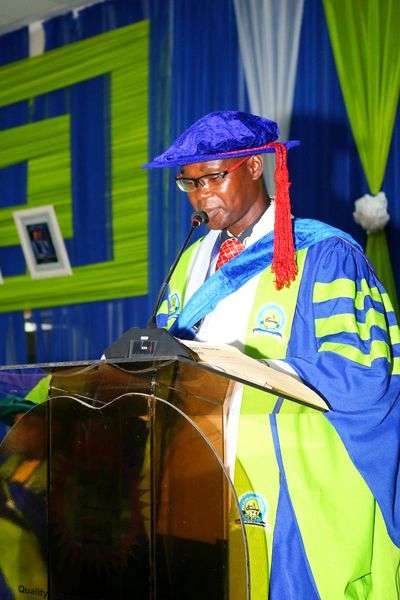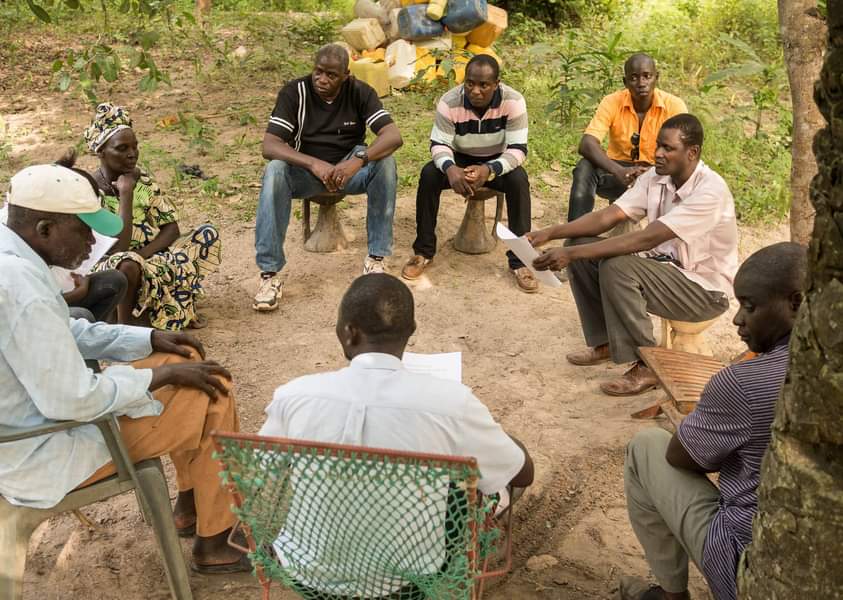Professor John Wasiu, a renowned Civil Engineering expert, on Wednesday delivered the 15th Inaugural Lecture at Edo State University Uzairue themed: “Reliability Based Design and Eco-Innovative Concrete: A Panacea to Building Collapse and Sustainable Development.”
Prof. Wasiu who is the Dean, Faculty of Engineering of the institution addressed the alarming issue of incessant building collapses in Nigeria. Noting that, the frequent building collapses is as a result of structural defects, the use of sub-standard materials, unqualified professionals, and the non-compliance with building laws.
He emphasized the need for stricter enforcement of building regulations and called for stiffer sanctions on those who fail to comply with the laws.
According to him: “We have the laws to prevent building collapses but we are not adhering to the laws, All construction activities should be properly planned and monitored by regulatory bodies to ensure that all buildings are constructed according to design, specifications and planning regulations.
“Government agencies should enforce control of building works according to the laws guiding building construction in Nigeria.”
Highlighting the importance of adhering to building laws, he stressed the necessity for all construction activities to be meticulously planned and monitored by regulatory bodies to ensure strict adherence to design, specifications, and planning regulations.
Additionally, he urged government agencies to enforce control of building works in accordance with Nigerian building construction laws.
Prof. Wasiu also emphasized that building collapses in Nigeria are mainly caused by man-made factors, such as the use of low-quality building materials and the employment of incompetent craftsmen instead of professionals.
He pointed out that existing building codes, intended to guide builders, are currently ineffective and called for the enforcement of building standards and codes to prevent the use of incompetent builders and substandard materials.
He said: ““In recent times, Nigeria has experienced the collapse of sundry buildings which claimed the lives of many of her citizens and damaged properties worth millions of naira.
“Quite a lot of lives and properties have been destroyed in the several incidents of building collapse in Nigeria, and this have impacted negatively on the social-economic status of Nigeria.
The professor proposed that reliability-based design and eco-innovative approaches in building construction would result in safe, economical, and durable structures. He suggested that government should empower relevant engineering bodies to make reliability-based design checks mandatory to ensure the structural safety of any design before execution.
“Reliability based design will yield an economical design and an area of reinforcement capable of resisting all load effect on reinforced concrete structures with predetermined safety level.
“Government should empower relevant engineering bodies to make reliability based design check a mandatory document to ascertain level of structural safety of any design before they are executed.” He stressed.
In his remarks, the Vice Chancellor of the University, Prof. Emmanuel Aluyor, highlighted the university’s commitment to academic excellence and its dedication to fostering structural integrity and promoting sustainability in construction.
“The inaugural lecture series is our university’s intention to develop a tradition as is obtainable in the world’s foremost university were professors present their inaugural lectures.”
He continued: “The University leveraged technology-driven educational resources for teaching learning and evaluation, demonstrating our commitment to quality education.”
He emphasized the university’s use of technology-driven educational resources for teaching, learning, and evaluation, demonstrating its commitment to quality education.
According to him: “The platform for inaugural lecture will be used to give their present research interests and future plans and not an avenue to propagate works done before becoming Professors,”







